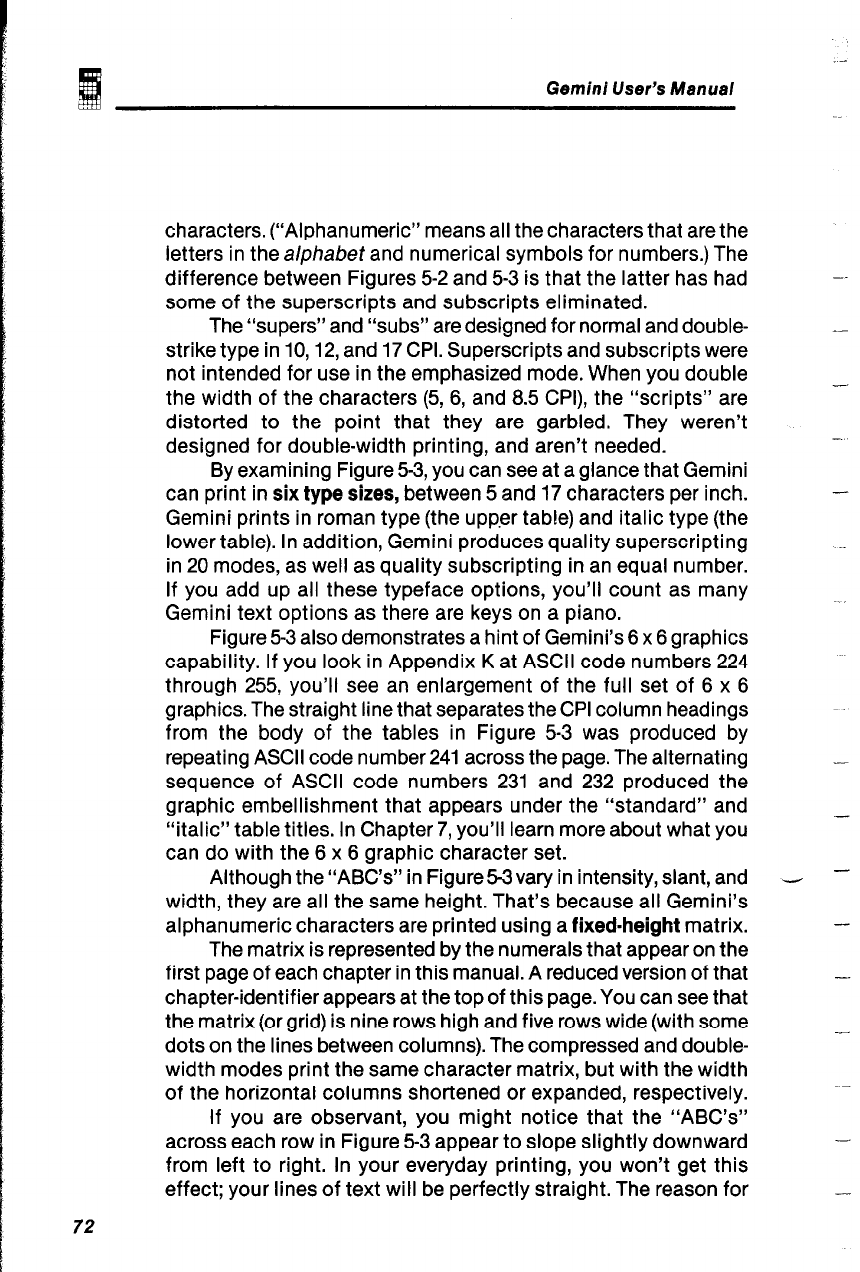
Gemini User’s Manual
characters. (“Alphanumeric” means all the characters that are the
letters in the alphabet and numerical symbols for numbers.) The
difference between Figures 5-2 and 5-3 is that the latter has had --
some of the superscripts and subscripts eliminated.
The “supers” and “subs” are designed for normal and double- -
strike type in IO, 12, and I7 CPI. Superscripts and subscripts were
not intended for use in the emphasized mode. When you double
-
the width of the characters (5,6, and 8.5 CPI), the “scripts” are
distorted to the point that they are garbled. They weren’t
designed for double-width printing, and aren’t needed.
-.
By examining Figure 5-3, you can see at a glance that Gemini
can print in six type sizes, between 5 and 17 characters per inch.
-
Gemini prints in roman type (the upp.er table) and italic type (the
lower table). In addition, Gemini produces quality superscripting
in 20 modes, as well as quality subscripting in an equal number.
If you add up all these typeface options, you’ll count as many
Gemini text options as there are keys on a piano.
Figure 5-3 also demonstrates a hint of Gemini’s6 x 6 graphics
capability. If you look in Appendix K at ASCII code numbers 224
through 255, you’ll see an enlargement of the full set of 6 x 6
graphics. The straight line that separates the CPI column headings
from the body of the tables in Figure 5-3 was produced by
repeating ASCII code number 241 across the page. The alternating
-
sequence of ASCII code numbers 231 and 232 produced the
graphic embellishment that appears under the “standard” and _
“italic” table titles. In Chapter 7, you’ll learn more about what you
can do with the 6 x 6 graphic character set.
Although the “ABC’s” in Figure5-3vary in intensity, slant, and - -
72
width, they are all the same height. That’s because all Gemini’s
alphanumeric characters are printed using a fixed-height matrix.
The matrix is represented by the numerals that appear on the
first page of each chapter in this manual. A reduced version of that
chapter-identifier appears at the top of this page. You can see that
the matrix (or grid) is nine rows high and five rows wide (with some
dots on the lines between columns). The compressed and double-
width modes print the same character matrix, but with the width
of the horizontal columns shortened or expanded, respectively.
If you are observant, you might notice that the “ABC’s”
across each row in Figure 5-3 appear to slope slightly downward
from left to right. In your everyday printing, you won’t get this
effect; your lines of text will be perfectly straight. The reason for
-
-.
-
-
-
